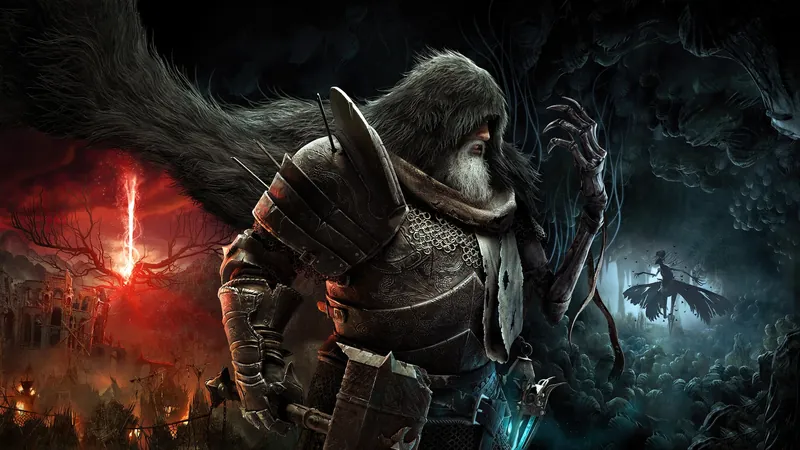
CI Games Stirs Controversy with Bold Anti-DEI Stance in Gaming
2025-01-12
Author: Wei
In a recent investor call, CI Games, the publisher behind Lords of the Fallen, has ignited a firestorm of debate by asserting it will avoid embedding social or political agendas in its games. This statement comes amid increasing discussions in the gaming industry about Diversity, Equity, and Inclusion (DEI), with CI Games claiming that these elements can pose a "high risk" for commercial success.
Global marketing director Ryan Hill expressed concerns that audiences "do not appreciate" games infused with DEI themes, suggesting that as a response, the studio will hone its focus on delivering "an excellent user experience with compelling thematics and characters" designed for core and adjacent gaming audiences. Hill's comments echo a sentiment that has emerged in recent months: the belief that games promoting diversity and inclusion have struggled to resonate with players, leading to underwhelming sales amidst a backdrop of high-profile game releases failing to meet commercial expectations.
However, Hill did not provide specific examples or elaborations on how DEI efforts have led to the perceived commercial failures. The gaming community is rife with speculation, with many attributing other factors—such as the overall state of the economy, the rising costs of game development, and increasing competition in the gaming landscape—as critical contributors to these failures.
Interestingly, the discourse surrounding CI Games' statements highlights a possible misidentification of DEI as the primary culprit for lackluster sales. While many high-profile game releases have indeed struggled recently, attributing their failures solely to their inclusion of diverse characters glosses over crucial issues like the rising cost of living impacting consumer spending and potentially uninspired gameplay.
Furthermore, Hill's assertion of avoiding social or political agendas may inadvertently reveal a broader agenda of its own: one that opts for conventional storytelling and design over the evolving narratives that some players are seeking. This stance raises questions about the inherent nature of games; all gaming experiences carry a degree of political nuance, reflecting the artistic and cultural backgrounds of their creators, regardless of intent.
As the gaming industry continues to evolve, CI Games' declaration is likely to resonate with segments of the gaming community who believe that popular franchises should remain devoid of social commentary. Still, it risks alienating a growing audience that values diverse narratives and representation.
This ongoing conversation is a reminder of the complexities involved in game development and marketing—a balancing act between creative expression and commercial viability. CI Games' approach may prove to be a double-edged sword, potentially distancing them from a demographic that is not only hungry for entertainment but also for inclusivity in their gaming experiences.
As CI Games navigates this controversial path, the future of its products and the reception they receive will be telling. Are they prioritizing the traditional gaming experience at the expense of failing to engage an evolving player base? Only time will tell how this strategy unfolds in an increasingly diverse and dynamic industry.



 Brasil (PT)
Brasil (PT)
 Canada (EN)
Canada (EN)
 Chile (ES)
Chile (ES)
 Česko (CS)
Česko (CS)
 대한민국 (KO)
대한민국 (KO)
 España (ES)
España (ES)
 France (FR)
France (FR)
 Hong Kong (EN)
Hong Kong (EN)
 Italia (IT)
Italia (IT)
 日本 (JA)
日本 (JA)
 Magyarország (HU)
Magyarország (HU)
 Norge (NO)
Norge (NO)
 Polska (PL)
Polska (PL)
 Schweiz (DE)
Schweiz (DE)
 Singapore (EN)
Singapore (EN)
 Sverige (SV)
Sverige (SV)
 Suomi (FI)
Suomi (FI)
 Türkiye (TR)
Türkiye (TR)
 الإمارات العربية المتحدة (AR)
الإمارات العربية المتحدة (AR)